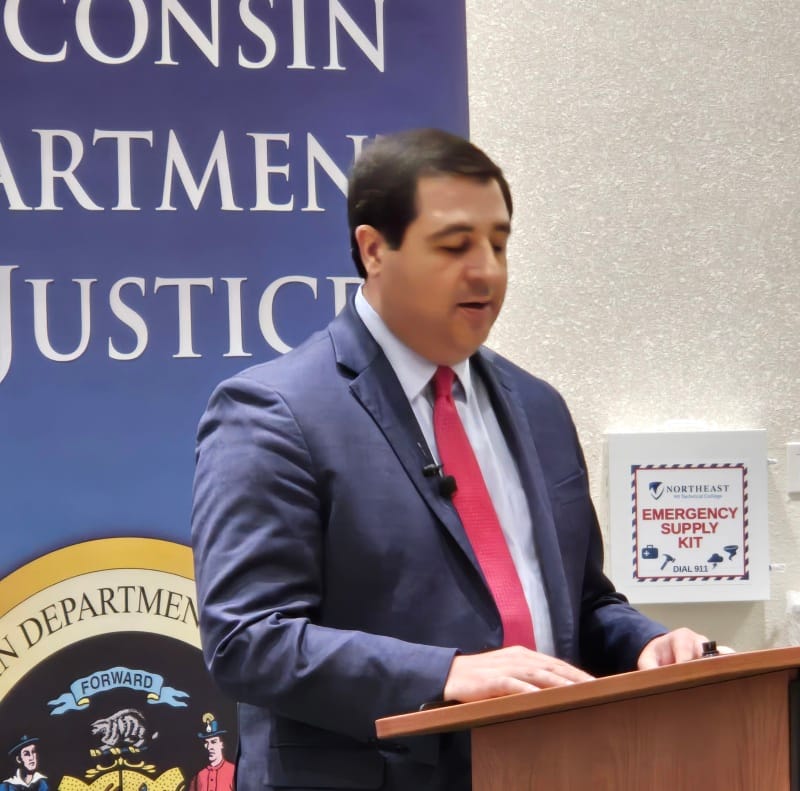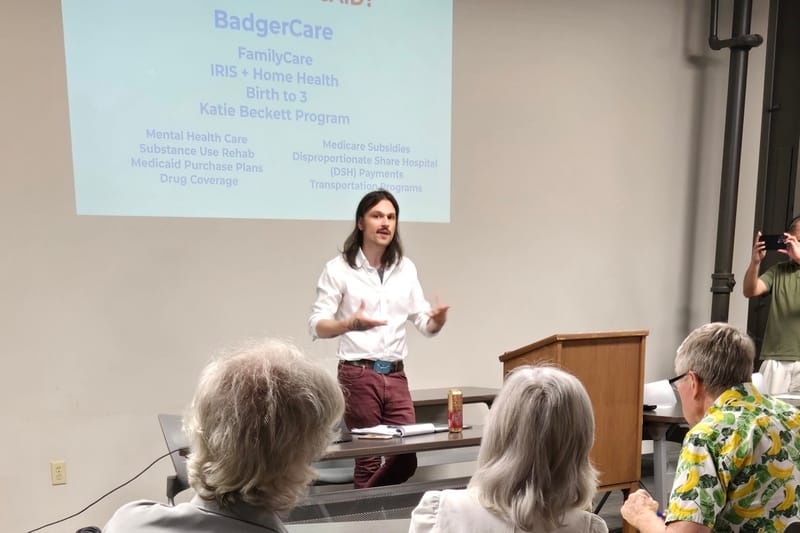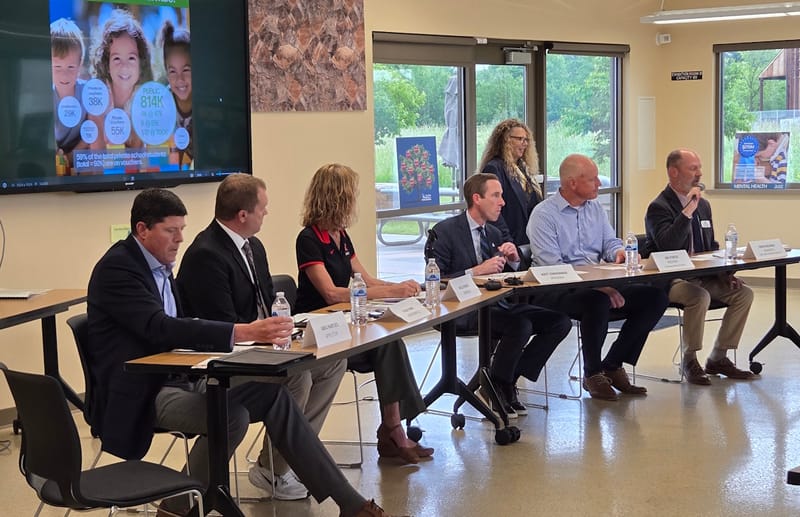AG Kaul hosts town hall to answer voters' concerns
Citizens' questions centered around the multiple lawsuits Wisconsin has joined against the administration, ranging from birthright citizenship to education to health research.

Saying it was important to touch base with Wisconsinites during a chaotic time in US history, Attorney General Josh Kaul hosted a town hall meeting on Friday night in De Pere.
“We are doing this because we have had a notable uptick in communications recently,” Kaul said. “There is a lot of change happening at the federal level, and that's impacting the lives of people across the country. People are concerned about a lot of these changes.”
Local legislators in attendance included Republican State Senators Andre Jacque, Democratic State Senator Jamie Wall, and Democratic Assembly Representatives Ryan Spaude and Amaad Rivera-Wagner.
Nearly 100 people attended the event. Their questions centered around the multiple lawsuits Wisconsin has joined against the administration, ranging from birthright citizenship to education to health research. Kaul explained that two conditions must be met before joining a lawsuit: a strong legal basis for the challenge and a demonstration that the policy is harmful to Wisconsinites.
Wisconsin Attorney General Josh Kaul addresses birthright citizenship.
Kaul, along with other Democratic attorneys general around the country, filed a lawsuit on Trump’s birthright citizenship executive order almost immediately after the order was signed. A federal court has temporarily blocked its enforcement and the U.S. Supreme Court will hear oral arguments in May. Kaul says the 14th Amendment is clear and he anticipates the executive order will be struck down.
While Kaul said immigration and deportation are a federal enforcement responsibility, he argued it still must be done constitutionally. Kaul said he is closely watching the cases that involve due process.
"If people are deported without due process, that puts all of our rights at risk, including people who are U.S. citizens," Kaul said. "If that's happening and there's no recourse, that gives the administration the ability to act completely lawlessly, and that's not acceptable."
The President signed an executive order early in his administration asking for an analysis to be done on the Insurrection Act. This would give the U.S. military the power to enforce immigration laws. Should it be enacted, Kaul anticipates many legal challenges.
Kaul discusses the due process clause of the constitution.
“We will be watching closely because it could fundamentally change the way that people's daily lives happen, if you've got armed members in the military who are conducting enforcement operations in our communities,” he said.
In response to a question about executive orders superseding legislation passed by Congress that has been signed into law, Kaul reminded attendees that the U.S. Constitution is the supreme law of land. Congress can pass laws as long as they're consistent with the Constitution, he said, arguing that the executive branch is charged with executing the laws, not creating new laws. Many of the ongoing lawsuits deal with upholding the fundamental constitutional concept that there are three co-equal branches of government.
Sen Jacque had no comment when asked to discuss the issues addressed.
Kaul concluded by encouraging citizens to reach out to the Department of Justice with concerns and to continue to speak out.
“Don't underestimate your power in a democracy to make your voice heard,” he said.






